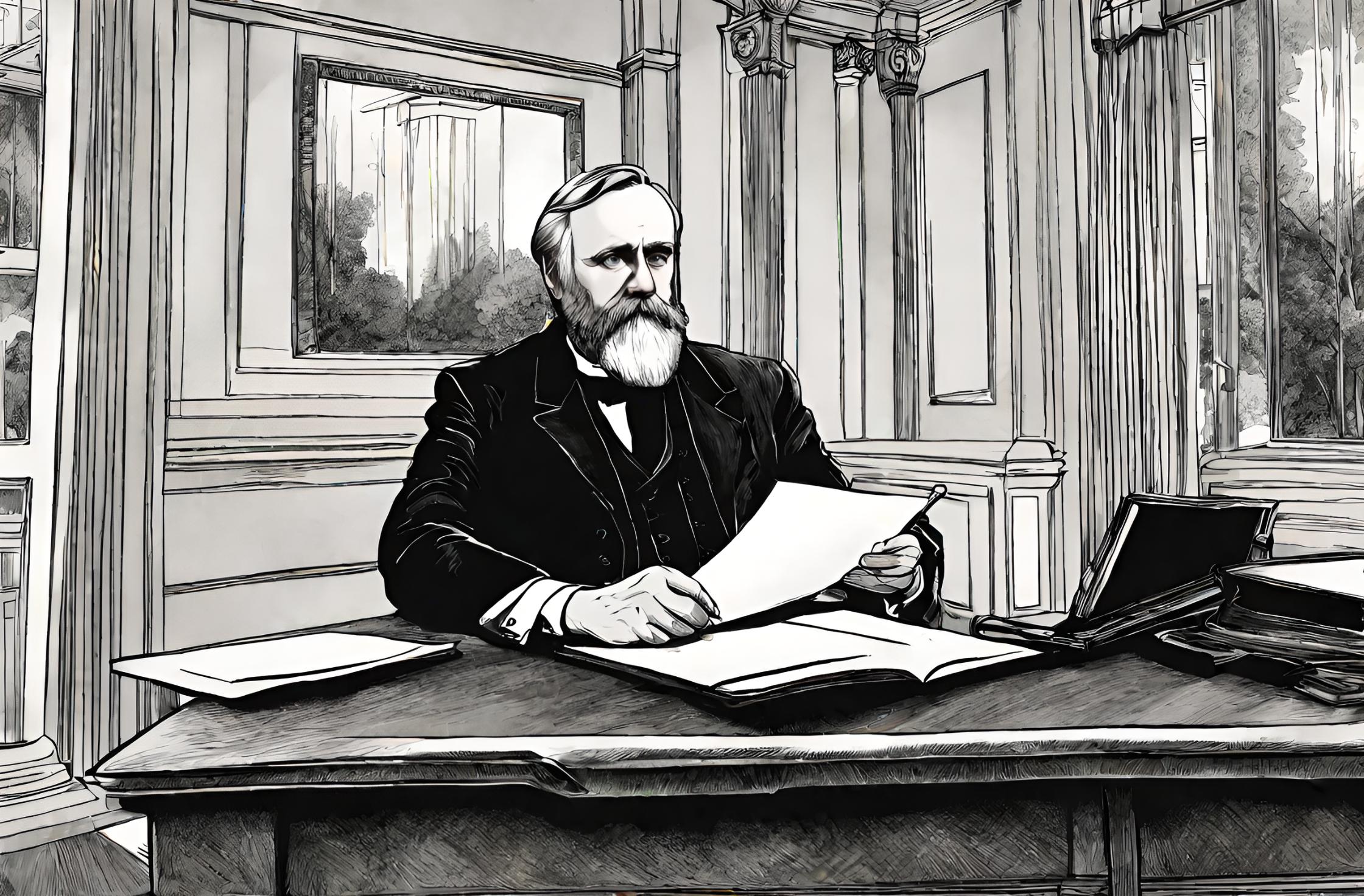Flashback to January 13
American History

On March 4, 1877, the United States witnessed the inauguration of Rutherford B. Hayes as the 19th President. This event marked an important moment in American history, as it brought about the end of the Reconstruction era following the Civil War. In this article, we will delve into the significance of Hayes’ presidency and the impact it had on the country.
Rutherford Birchard Hayes, a lawyer and former Union Army General, assumed office as President after a disputed and controversial election. The 1876 presidential election between Hayes, a Republican, and Samuel J. Tilden, a Democrat, resulted in one of the most contentious political battles in American history. Despite Tilden winning the popular vote, the election was eventually decided by the Electoral Commission, which awarded the presidency to Hayes by a narrow margin.
Hayes’ presidency was largely focused on reconciling the divide between the North and South and healing the wounds of the Civil War. As a symbol of his commitment to unifying the nation, Hayes withdrew federal troops from the Southern states, effectively ending Reconstruction. This decision was met with mixed reactions, as some saw it as a betrayal to African Americans in the South who were still fighting for equal rights.
Another significant aspect of Hayes’ presidency was his commitment to civil service reform. He championed the idea of merit-based appointments and sought to end the prevailing system of political patronage, where government jobs were awarded based on political loyalty rather than qualifications. Hayes’ efforts laid the groundwork for future reforms in the civil service system, ensuring a more efficient and fair government.
During his presidency, Hayes also focused on economic policies, advocating for a sound currency and tariff reform. He vetoed several bills aimed at increasing government spending and advocated for a return to the gold standard. These policies were aimed at stabilizing the economy and promoting fiscal responsibility.
Despite facing numerous challenges and a politically divided nation, Hayes was able to accomplish significant achievements during his presidency. He signed the Bland-Allison Act, which resumed the coinage of silver dollars and helped alleviate the nation’s financial difficulties. He also established the U.S. Naval War College and supported educational reform, especially for African American students.
In addition to his domestic policies, Hayes also pursued an active foreign policy agenda. He negotiated a peaceful resolution to the Potillock incident with Spain, which had the potential to escalate into a full-scale war. Hayes’ dedication to diplomacy and peaceful resolutions laid the groundwork for future diplomatic relations and set a precedent for international engagement.
The inauguration of Rutherford B. Hayes as the 19th President of the United States was a pivotal moment in American history. His presidency marked the end of Reconstruction and ushered in an era of civil service reform and economic stability. Despite the challenges faced during his tenure, Hayes implemented policies that shaped the nation and set the stage for future progress.
As we reflect on this historic event, it is important to recognize the impact that Hayes’ presidency had on the shaping of modern America. His commitment to unity, reform, and diplomacy laid the groundwork for future leaders and policies. The inauguration of Rutherford B. Hayes as the 19th President is a reminder of the resilience and determination of the American people during a time of great upheaval and change.
We strive for accuracy. If you see something that doesn't look right, click here to contact us!
Sponsored Content

Seven top New York…
On January 13, 1987,…

